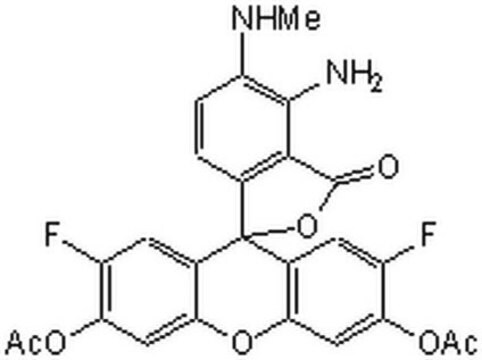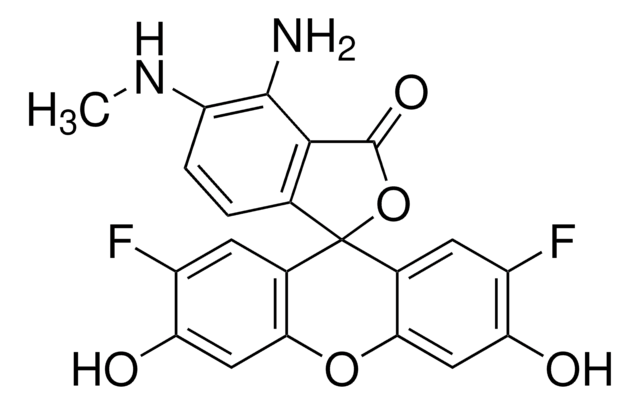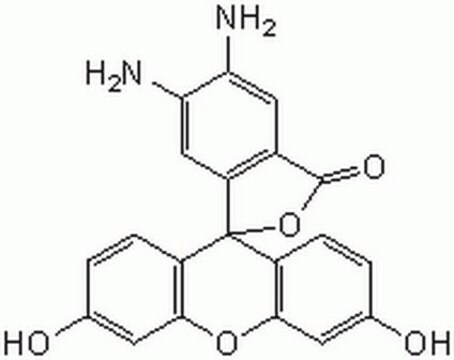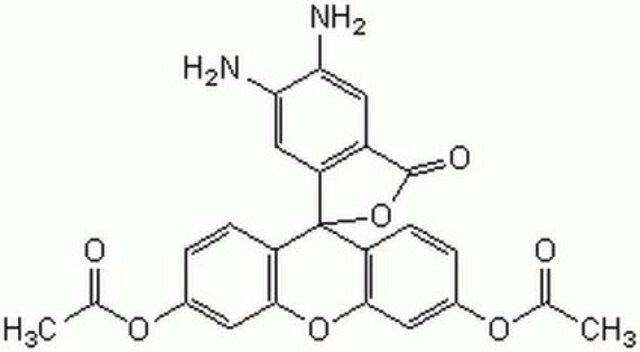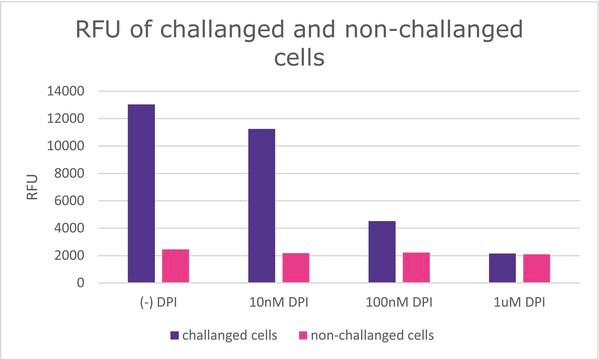D1821
DAF-FM
≥98% (HPLC)
Synonym(s):
4-Amino-5-methylamino-2′,7′-difluorescein, Diaminofluorescein-FM
About This Item
Recommended Products
Quality Level
Assay
≥98% (HPLC)
form
powder
storage condition
desiccated
color
white to brown
solubility
DMSO: >1 mg/mL
shipped in
wet ice
storage temp.
−20°C
SMILES string
CNc1ccc2c(c1N)C(=O)OC23c4cc(F)c(O)cc4Oc5cc(O)c(F)cc35
InChI
1S/C21H14F2N2O5/c1-25-13-3-2-8-18(19(13)24)20(28)30-21(8)9-4-11(22)14(26)6-16(9)29-17-7-15(27)12(23)5-10(17)21/h2-7,25-27H,24H2,1H3
InChI key
DIJCILWNOLHJCG-UHFFFAOYSA-N
Application
Biochem/physiol Actions
Caution
Preparation Note
Storage Class Code
11 - Combustible Solids
WGK
WGK 3
Flash Point(F)
Not applicable
Flash Point(C)
Not applicable
Certificates of Analysis (COA)
Search for Certificates of Analysis (COA) by entering the products Lot/Batch Number. Lot and Batch Numbers can be found on a product’s label following the words ‘Lot’ or ‘Batch’.
Already Own This Product?
Find documentation for the products that you have recently purchased in the Document Library.
Customers Also Viewed
Articles
We offer many products related to nitric oxide synthases for your research needs.
Nitric oxide (NO) as a signal transporter in neurons, endothelial cells and in the immune system.
Our team of scientists has experience in all areas of research including Life Science, Material Science, Chemical Synthesis, Chromatography, Analytical and many others.
Contact Technical Service
